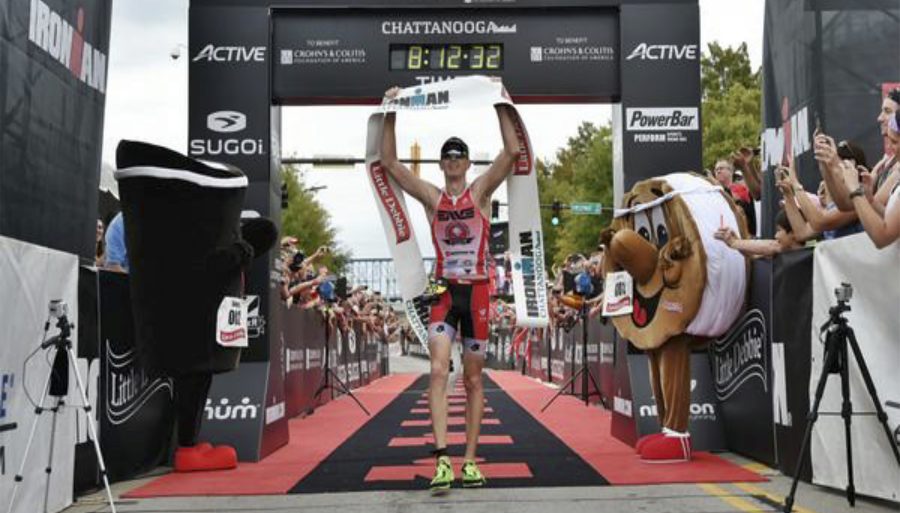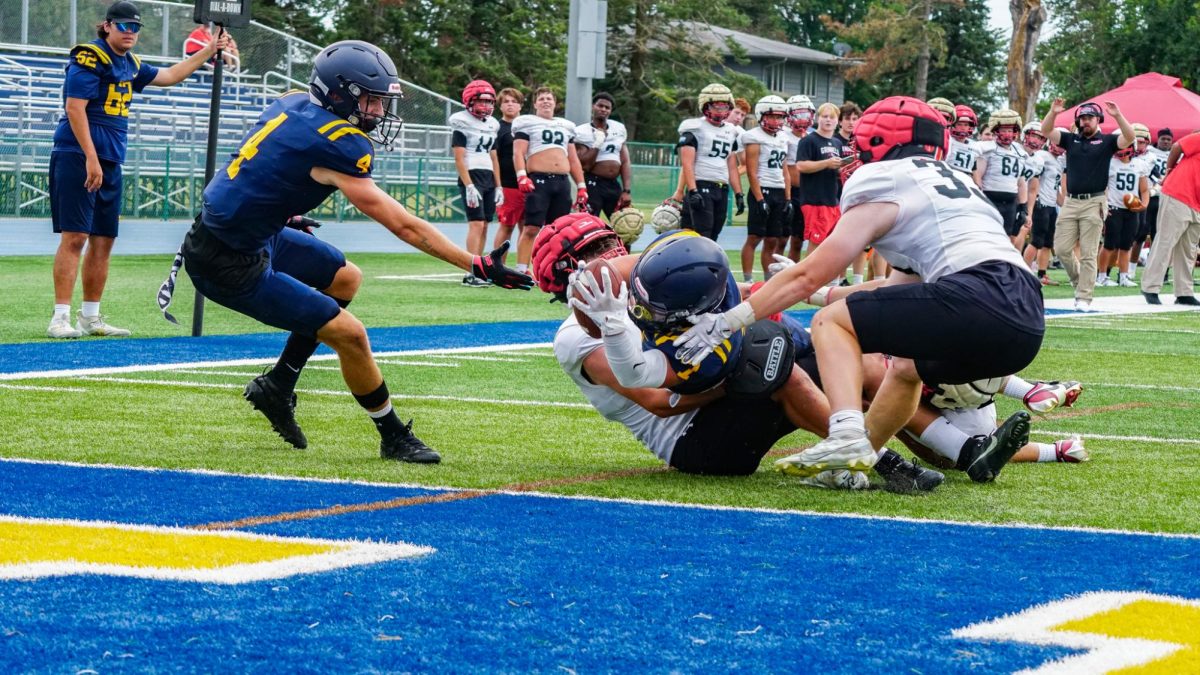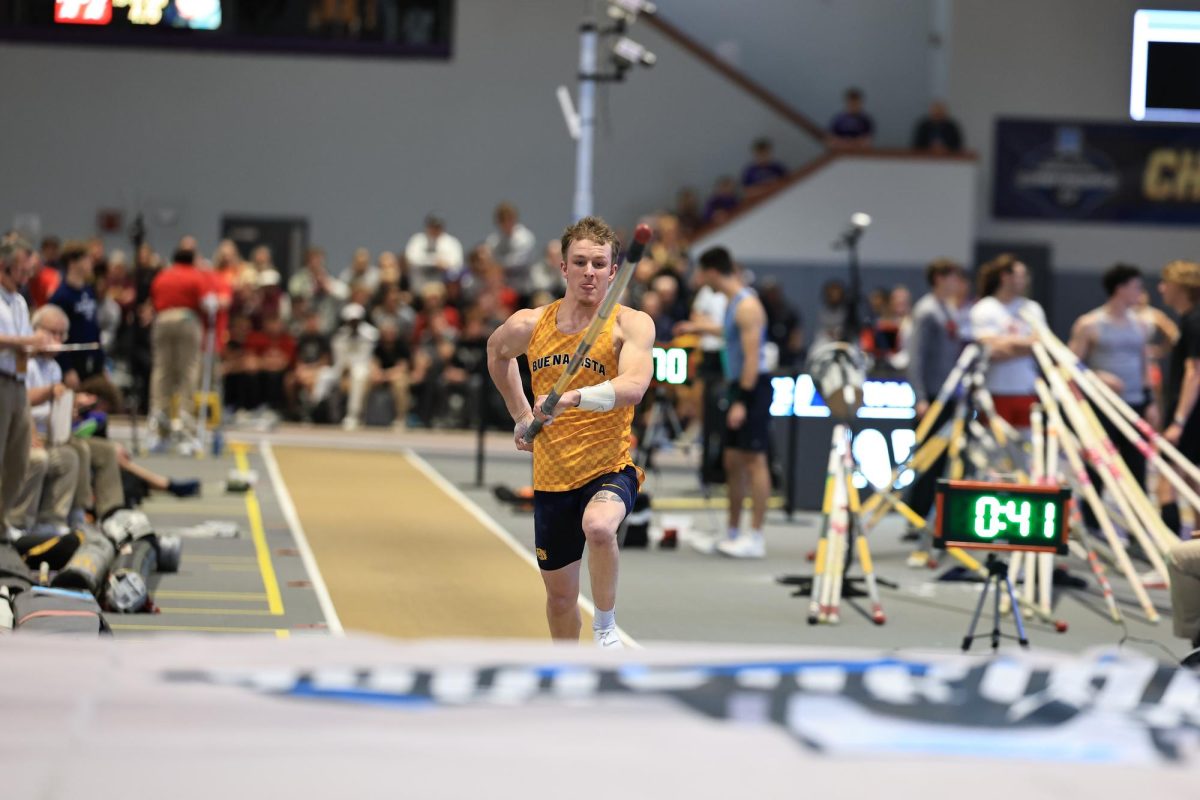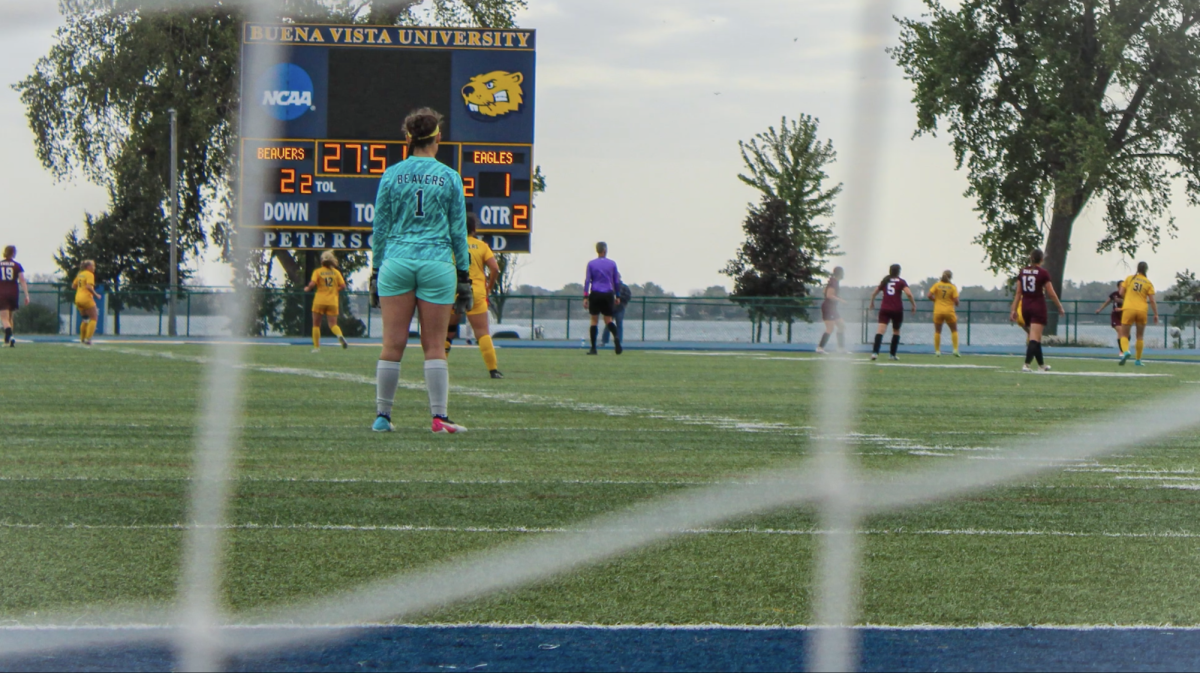Shelby Bradley | Sports Co-Editor
Dr. Matthew Hanson is not only Buena Vista University’s (BVU) assistant professor of Exercise Science and Athletic Training, but is also a professional triathlete.
Hanson is from West Concord, Minnesota and is 28 years old. He has been a professor at BVU since 2008 and has been competing as a triathlete since his first Ironman competition, Ironman Coeur d’Alene, in 2011.
Hanson has had motivation and has been interested to be a triathlete since he was 16. He made a list of 50 goals that he wanted to do in the next 10 years; completing an Ironman triathlon was one of them.
“I started training for [the triathlon] as a stress relief when I was in graduate school. I was fortunate enough to qualify for the World Championships in Kona, Hawaii in my first attempt. After that, I was completely hooked,” Hanson said.
After completing the Ironman triathlon, Hanson said it feels great being able to practice what he preaches about in his classes.
Having the urgency and motivation to continue training hard can be tough, but Hanson believes that God has given him a talent, and he feels he has a responsibility to use it to the best of his ability. He is also fortunate to have endured successes along the way.
“Success is addicting; you have one good result and you immediately start thinking about how and when you get to go out and compete again and try to do better. I enjoy searching for my body’s limits and then trying to improve so I can push beyond them,” Hanson said.
Hanson’s coach David Tilbury-Davis, who is one of the two coaches working with PhysFarm training systems, describes Hanson as being humble and a bit of a perfectionist, which are great qualities to have in being an elite athlete.
You may wonder what kind of toll this intense training may have on your body. Hanson’s typical training week is about 25-30 hours between swimming, biking, and running. He typically swims six days a week, bikes for five, and also runs for five. Hanson also has to keep his body in shape by refueling his body with food in which he usually eats anywhere from 4,000 to 7,000 calories per day.
“I don’t really follow a specific diet plan by any means, I eat what I want when I’m hungry, which is most of the time,” Hanson said.
Hanson has competed in a multitude of Ironman competitions that have taken place in a variety of locations. There are multiple distances for triathlons, but the one he typically competes in includes a 2.4-mile swim, a 112-mile bike ride, and a 26.2-mile run, which is a full marathon. Hanson will also do a few half Ironman’s, which is exactly half of each of the distances above but will rarely do an Olympic distance or a sprint.
“The training is just so different for those shorter races,” Hanson said.
One of Hanson’s as well as coach Tilbury-Davis’ favorite memories by far has been the Ironman Chattanooga in which Hanson was named champion.
“Ironman Chattanooga was an absolutely amazing experience. The energy at every finish line is incredible, but it is definitely much better when you win, especially when my wife sneaks in to the finish line and is the first to greet me! It is an addicting atmosphere and makes you want to go after the next one,” Hanson said.
Hanson’s next events will be the Ironman 70.3 taking place in California in March, and he then will compete in the North American Championships in The Woodlands, Texas.









